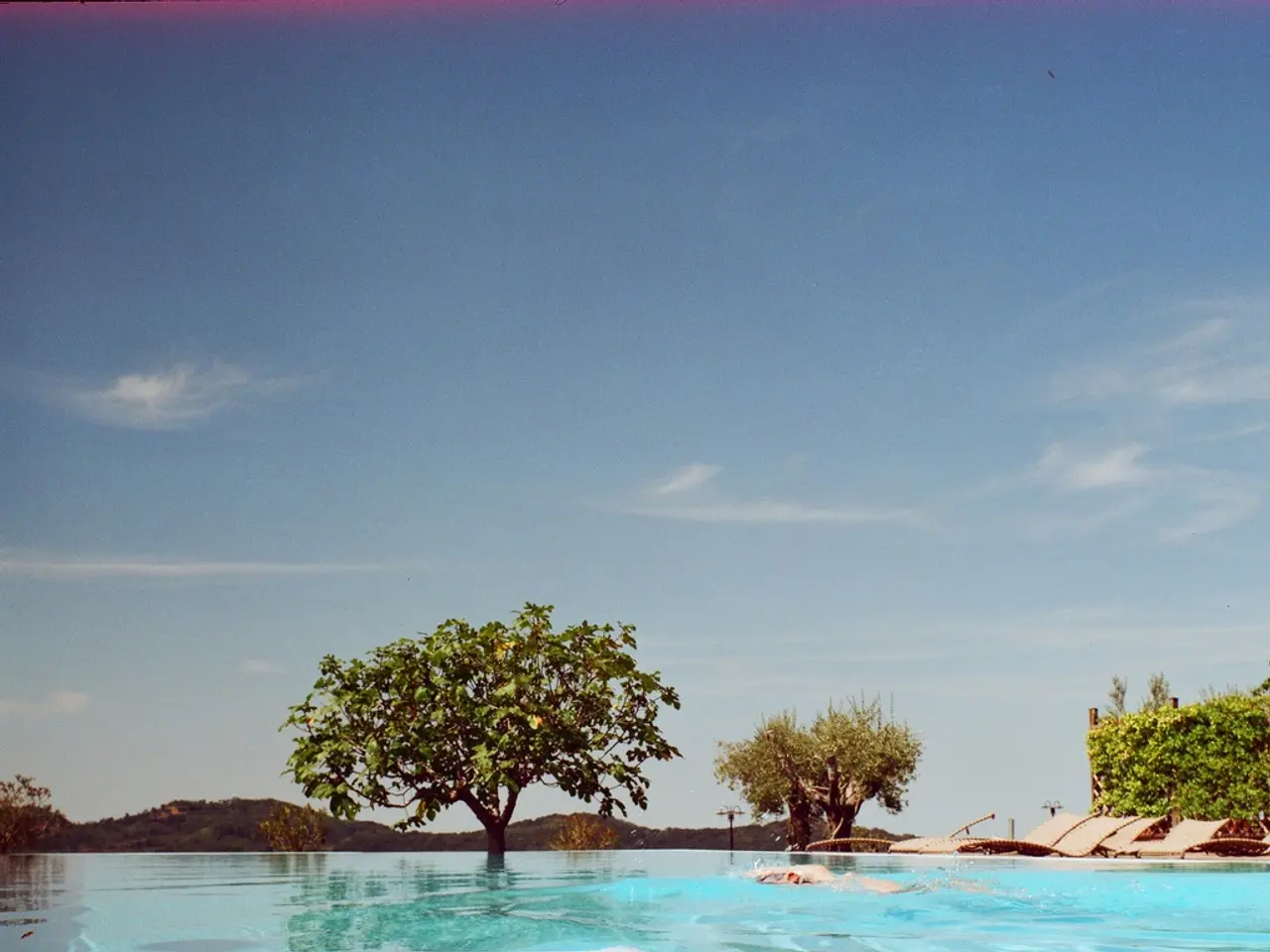Environmental, cost, and aesthetic comparisons between natural and conventional swimming pools, as found in expert analysis
In recent years, natural swimming pools have gained popularity as an eco-friendly and aesthetically pleasing alternative to traditional pools. These pools offer several benefits, including lower running costs and a reduced environmental impact.
Marlene Lento, a renowned garden designer, is one of the professionals leading the way in creating personalized green spaces that combine aesthetics with functionality. Her designs have been used to construct natural swimming pools that blend seamlessly into outdoor environments for both private and public clients.
One of the key advantages of natural swimming pools is their lower running costs. Unlike traditional pools, most of the cleaning of the water in a natural pool is done naturally, without the need for chemicals. This makes them more environmentally friendly and cost-effective in the long run.
However, it's important to note that the area of the pool with plants cannot be used for swimming. Additionally, natural pools cannot be heated, although they can be left uncovered all year, saving the cost of a cover and heating.
Planning permission is usually not required for natural swimming pools, but it's advisable to consult the local authority to ensure compliance with any regulations. On the other hand, traditional pools are more expensive to build, run, and maintain, and may require planning permission, especially if you live in an Area of Outstanding Natural Beauty, in one of the National Parks or the Broads.
Traditional pools also tend to have a more obvious man-made look, often being rectangular in shape, while natural pools can be customized to almost any shape, size, and aesthetic.
Another difference between the two is the filtration system. The water in a natural swimming pool is filtered by plants and micro-organisms, while a traditional pool is filtered and cleaned by chemicals and a mechanical filtration system. This means that more frequent water testing may be needed in natural pools to control algae buildup.
Covers are essential for traditional pools when they're not in use, as they require energy for heating. In contrast, natural pools do not have this requirement, making them a more energy-efficient choice.
In conclusion, natural swimming pools offer a sustainable and customizable alternative to traditional pools. With their lower running costs, eco-friendly design, and ability to blend into a garden, they are an attractive option for those looking to create a beautiful and functional outdoor space. As with any major home improvement project, it's important to consult with a qualified professional to ensure a successful installation and long-lasting enjoyment.
Read also:
- Impact of Alcohol on the Human Body: Nine Aspects of Health Alteration Due to Alcohol Consumption
- Understanding the Concept of Obesity
- Tough choices on August 13, 2025 for those born under Aquarius? Consider the advantages and disadvantages to gain guidance
- Microbiome's Impact on Emotional States, Judgement, and Mental Health Conditions







